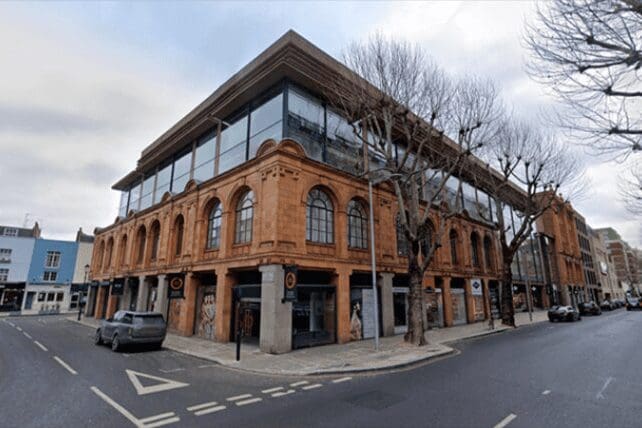ROME (RNS) — Testifying at a Vatican trial, Venezuelan Archbishop Edgar Peña Parra, the Vatican substitute, an equivalent of a papal chief of staff, compared the events leading to the failed London property deal with Jesus’ agonizing march toward crucifixion.
On the 51st session of the Vatican trial into the controversial property deal, Peña Parra, who is the highest ranking official yet to testify, said the Vatican was ultimately deceived by Gianluigi Torzi, an Italian broker who is accused of defrauding the Vatican of millions.
“Torzi had the power, and we couldn’t do it any other way,” said Peña Parra Thursday (March 16). He then described it as a “Via Crucis, indeed a double Via Crucis. If the Lord fell three times, we fell six times.”
At the trial, Peña Parra answered questions for more than four hours from both prosecutors and defense lawyers regarding his role in the Vatican’s withdrawal from the controversial property deal, which he inherited after he succeeded Cardinal Angelo Becciu as Vatican chief of staff in 2018.
Becciu, who resigned the privileges of cardinal in 2020, is among the 10 defendants in the trial accused of financial malfeasance.
Peña Parra said he was informed about the dire circumstances of the deal by Monsignor Alberto Perlasca, the former head of the administrative office of the Vatican Secretariat of State, who went from prime suspect to the Vatican prosecution’s star witness in the case.
It was Perlasca, the Venezuelan prelate told the court, who signed the Framework Agreement and the Share Purchase Agreement — despite lacking the authority or authorization to do so — that led to Torzi’s ownership of the property’s controlling shares.
In 2014, the Vatican had invested $200 million in the property, belonging at the time to the Italian investor Raffaele Mincione. Four years later, with Torzi serving as middleman, the Vatican purchased 30,000 non-voting shares of the property. However, Torzi held onto 1,000 controlling shares and then asked the Vatican to fork over more than $17 million for his shares, as well as for his role in brokering the deal.
In his testimony, Peña Parra said that in a meeting with Pope Francis, along with two lawyers, it was clear the whole affair was a “deception,” and he was instructed by the pope to get out of the deal “and lose as little money as possible.”
Nevertheless, he said, in 2019, the Vatican had no choice but to pay Torzi 15 million euro in two installments of 10 million euro and 5 million euro. However, after making the payments, Vatican prosecutors accused the broker of blackmail and, in 2020, held Torzi for interrogation for 10 days before releasing him.
“We were forced to. It was truly painful for me to see that we still had to give money for this matter,” Peña Parra said.
Peña Parra’s cross-examination continued March 17, and he was asked for more details regarding the property deal, including by lawyers representing the Vatican Bank and the Secretariat of State, who are civil parties in the case.

